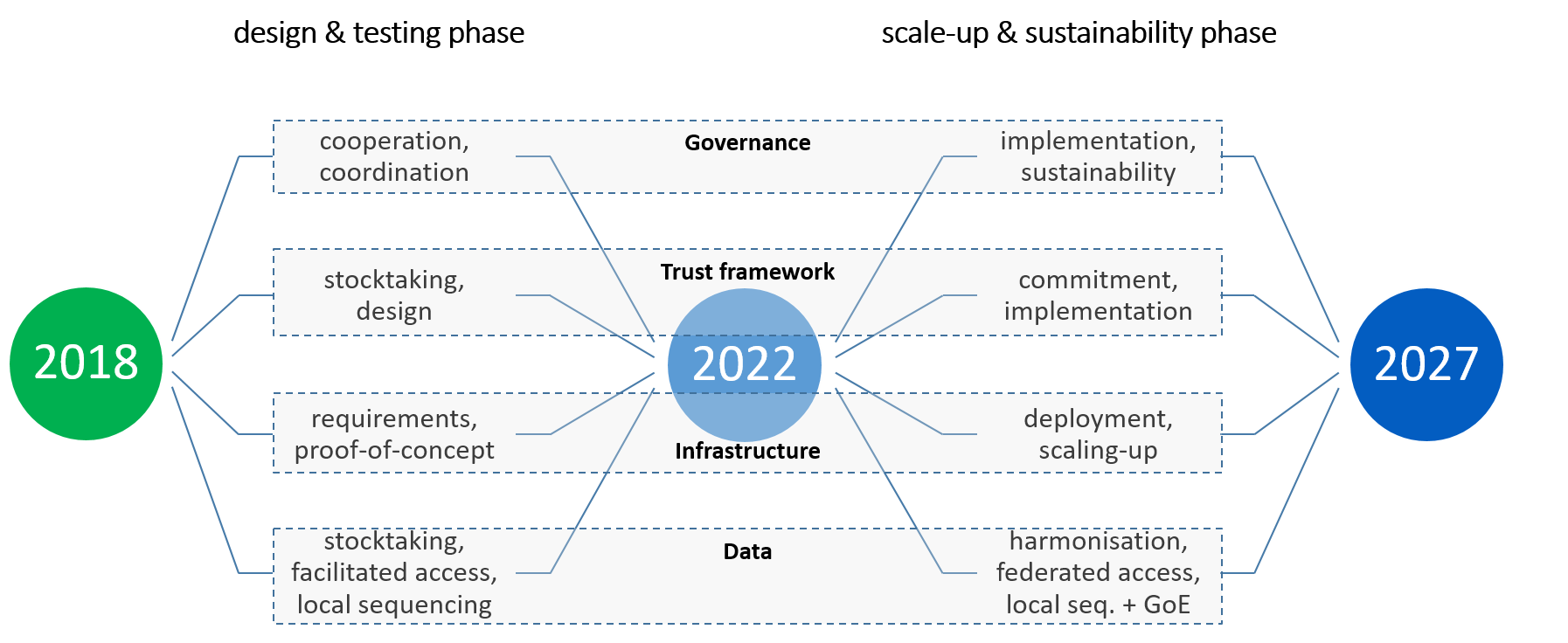To enable early diagnosis and intervention in cases of mild cognitive impairment, Taking advantage of government support, National Taiwan University of Science and Technology has successfully developed the first rapid and accurate diagnostic system that integrates various technologies to identify cases of mental decline and intervene quickly to avoid developing Alzheimer's disease.
The World Alzheimer's Disease Organization estimates that there are more than 55 million people around the world suffering from mental decline. at the rate of a new case every 3 seconds, This makes this category of diseases one of the biggest health burdens. Foremost among these, Comes the "mild cognitive impairment" (MCI), It is a condition between the natural cognitive decline associated with aging, and deterioration resulting from dementia caused by Alzheimer's disease.
In Taiwan, Nearly 300,000 people suffer from Alzheimer's disease. They constitute 7.7% of the elderly group, That figure is set to rise to 460,000 in 2031. So far, Medicine is still unable to provide effective treatment for this disease, which causes 60–80% of cases of mental decline and dementia. Moreover, People with mild cognitive impairment are more likely to develop Alzheimer's disease. 15% of people over the age of 65 develop Alzheimer's disease two years after their diagnosis. 32% develop it after 5 years. Evidence and research suggest that reducing this risk is possible with proper lifestyle management. Control cases of high blood pressure and diabetes, if any, and quality mental health care, and pharmacological and non-pharmacological interventions.
The number of people with mental decline is projected to rise to 139 million by 2050. It is associated with a misdiagnosis of mild cognitive impairment within societies, Elderly people with it often do not realize the dimensions of their cognitive decline Those around them also tend to ignore symptoms. Which delays them from seeking medical advice.
Faced with the urgent need for safe, objective and easy methods of diagnosis and the promotion of early intervention and prevention, The Government of Taiwan has provided support to a multidisciplinary team of researchers led by a professor of National Taiwan University of Science and Technology. This team worked on developing a diagnostic system that is the first of its kind, Artificial intelligence is used to quickly screen for mental decline and dementia caused by Alzheimer's disease and mild cognitive impairment, Even in the "prodromal phase", It is a medical term that refers to the period of the initial symptoms of the disease, Which are often overlooked by patients or their families.
This new diagnostic system is based on the results of electroencephalography, which is a test to detect the electrical activity of the brain and then convert it into wavy lines that can be read by specialists. The system also uses computers to integrate different techniques, including processing different indicators shown by the chart, As well as artificial intelligence, cognitive neuroscience and various medical specialties.
The team developed a technique to analyze data indicated by the electroencephalogram of the brain. They then used machine learning to identify areas of the brain that are most sensitive and prone to mild cognitive impairment. Thus, The system takes two minutes to get an EEG and 40 seconds to prepare the analysis report. That is, the whole diagnostic process takes less than 3 minutes. The algorithm for classifying EEG scans is also embedded in the AI model for more accurate results.
The system consists of 3 main components, Beginning with sensors, They are surface electrodes, and an EEG with its own amplifier to take and process analog signals, Hence the software part represented by the artificial intelligence model.
To embody the results of research into a smart medical device usable in clinical practice, The team is working to raise investments to create a new company, To date, the company has attracted more than US$330 million in funding. The system has been authorized by Taiwan's Food and Drug Administration. Work is also under way to establish the largest data bank on cases of mental decline, dementia and mild cognitive impairment. By reaching out to several major medical centers in the country such as the National Taiwan University Hospital and coordinating the work that should be completed by the third quarter of 2022. Based on this databank, A more accurate and neutral AI model will be built.
In this way, There will be a comprehensive smart system that includes an electroencephalogram device, and a high-precision artificial intelligence model, and a high-performance cloud computing platform, This is what researchers are looking to achieve in the near future. According to the progress of the plan and the challenges it may face in order to develop the system in its current form.
With less than 7 electrodes, The system provides comfort, And by being non-surgical, It achieves high standards of safety and security, Because the diagnosis process takes less than 3 minutes, They are highly efficient. The system achieved a high level of accuracy of 90%, during the work Besides being easy to use, This makes it qualified to be an objective measurement tool that helps diagnose mental decline and dementia. And more suitable for routine screen.
After obtaining the approval of the Food and Drug Administration in Taiwan, The team hopes their outcome can facilitate early intervention and reduce the risk of Alzheimer's-associated dementia.
References:
- https://focustaiwan.tw/sci-tech/202112090019
- https://www.most.gov.tw/folksonomy/detail/a21aeccc-a9cc-46ff-be54-8075e719f4de?l=en






